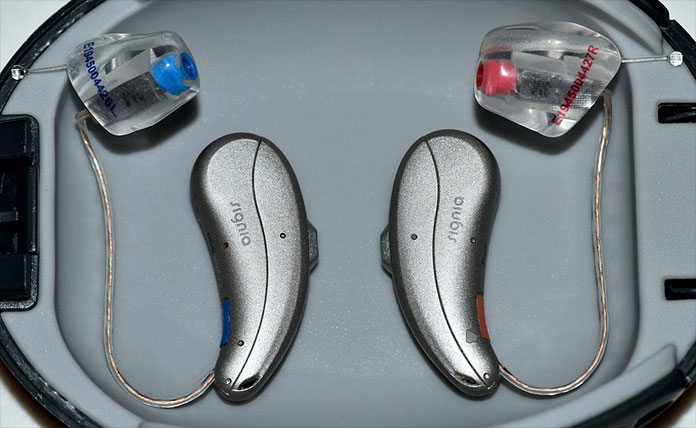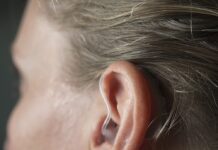
The FDA has released a new class of hearing aids called OTCs. These devices have actually been around for many years as direct to consumer. The FDA has created a new set of standards trying to educate the public about the differences between Personal Sound Amplifiers (PSAs) and Over the Counter Hearing Aids (OTCs).
OTCs were developed as a more affordable hearing aid option since the majority of those with hearing impairment don’t seek help because of “cost.” The research is very clear that untreated hearing loss increases the risk of cognitive decline so recognizing and treating hearing loss sooner than later is critical to maximizing brain function.
Most people will wait at least 7 years to even take that next step and have a complete hearing evaluation. I believe the large marketing blitz promoting OTCs will push the consumer to at least think about having an evaluation and/or just bypass the hearing healthcare professional and purchased these products.
In my opinion, the biggest failure of the FDA in pushing OTCs is the fact that a) a complete hearing evaluation is not even recommended and b) the law states that these OTC devices are only recommended for mild to moderate hearing losses. So, I ask the question, how does one know the degree of hearing loss they actually have without have a complete hearing evaluation? The so-called online hearing tests are basically screening your hearing and it certainly does not rule out impacted wax and/or certain diseases of the ears that should be medically managed. Finally, most folks would “underestimate the degree of hearing loss that they have.
Here are a few OTC devices that you may see advertised. I would like to summarize the pro’s and cons of each:
Lively: This is one of the better OTC options since it utilizes digital hearing aid technology from a major hearing aid manufacturer – GN Resound and they can actually program the hearing aid to your actual hearing loss. The cost is $1350 -2000 for the pair. The aids can be rechargeable with a 3-yr. warranty, user friendly APP, Bluetooth capabilities, and a 100-day trial period. There are also financing options. The technology that GN is using is at least 5 years old and the remote programming does have its limitations.
EarGo: Discreet and rechargeable ranging in cost between $1500-2900 for a pair. Most models come with a 1 yr. warranty, although the Eargo 5 comes with a 2-yr. warranty. Like the majority of OTCs, Eargo is not programmed for any particular hearing loss. Over time, the rechargeable battery loses its capacity to hold a charge. Thus, after the warranty, Eargo will not replace the battery so you have to buy a new device.
Bose Sound Control: One of the newest OTCs on the market. $849 a pair with a 90-day risk free return policy and 1 yr. warranty. There is NOT a rechargeable option, no audio streaming, and only available in one style and one ugly gray color
MD Hearing Aid: These products have been on the market for years. They range in price from $400 – $1000 per pair, have a rechargeable option, but only a 90-day limited warranty. You can purchase a protection plan for about $15/month. Again, like most OTCs, the devices are not programmed for any specific hearing loss and the product looks like it cost about $40 to manufacturer.
POSITIVES of OTCs:
- The companies like Bose and others promoting themselves will invest heavily in advertising to encourage people to consider this type of help if they have hearing challenges. If only 25% of those with documented hearing loss are seeking help, this type of initiative should significantly increase market penetration to at least 40%.
- Hearing loss will become more accepted – just as a problem with your eyes seamlessly leads you toward having them tested-a problem with your hearing should also lead you toward testing.
- They’re going to serve as a possible “first step” for many people to then consider more appropriate solutions for their difficulty hearing situations (like “readers” versus prescribed glasses).
- In my opinion, the OTC era will force the major hearing aid manufacturers to lower their cost of their products to make it more affordable for the 25-30 million hearing impaired folks that are delaying hearing help. It is also more than likely that MEDICARE will directly provide a hearing aid benefit for those with severe-to-profound hearing loss.
NEGATIVES of OTCs:
- A large number of things can cause a hearing loss, from a buildup of earwax to more medically concerning (and potentially dangerous unless treated) reasons – this type of self-fitting device may be needless or be like adding a Band-Aid to a fracture.
- You don’t have a professional hearing assessment before self-fitting. Unfortunately, even if you do have this critical step completed, there is no way of programming these devices to your specific hearing loss. This means that they are unlikely to perform properly for you, resulting in potential further problems. It’s impossible to incorporate best practices such as “real-ear” measures and/or aided speech discrimination unless you directly visit your hearing healthcare professional!
- Hearing aids can be lost especially when dislodged by face masks– most traditional hearing aids include loss coverage, while the Bose SoundControl and many OTC devices don’t offer any coverage.
- Because all OTC companies offer a risk-free trial period, many consumers will try these products, have a bad experience and wait another 5-7 years to directly visit your hearing healthcare professional.
Dr. Izzy recommends that before you potentially throw away your money on OTCs, it’s imperative that you have a complete hearing evaluation by a licensed hearing healthcare professional. Who knows, it may only be an impacted wax issue. On the other hand, you may have middle ear effusion (fluid behind the eardrum), Otosclerosis, or an acoustic neuroma (tumor) that needs immediate attention. Remember, you’re hearing is priceless so don’t take any short cuts in managing your hearing loss.
Dr. Izzy and his staff are always available to answer your hearing healthcare questions. Please visit gardenstatehearing.com or call 732-818-3610 (Toms River/Whiting) or 609-978-8946 (Manahawkin).






